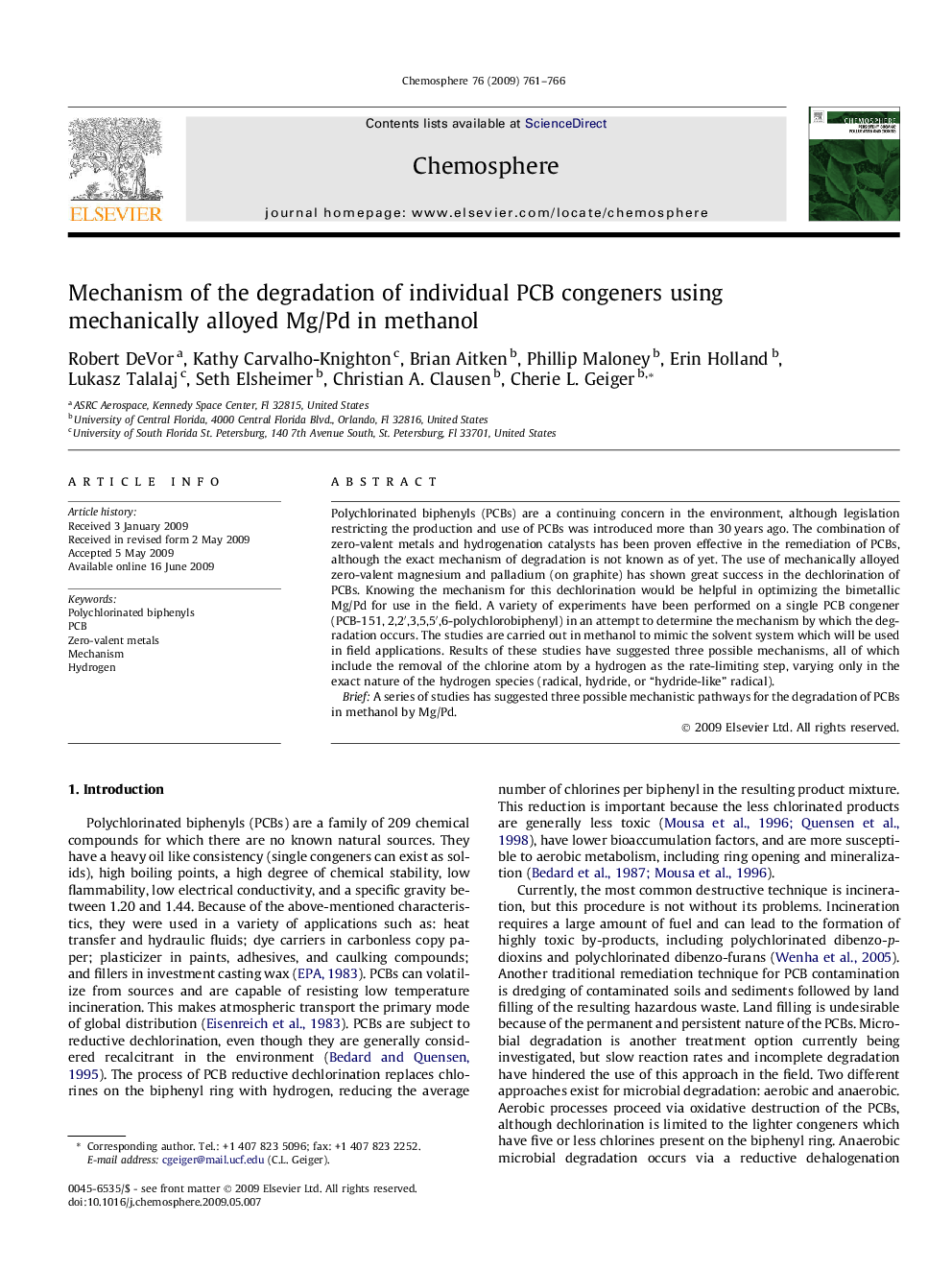| کد مقاله | کد نشریه | سال انتشار | مقاله انگلیسی | نسخه تمام متن |
|---|---|---|---|---|
| 4412294 | 1307632 | 2009 | 6 صفحه PDF | دانلود رایگان |

Polychlorinated biphenyls (PCBs) are a continuing concern in the environment, although legislation restricting the production and use of PCBs was introduced more than 30 years ago. The combination of zero-valent metals and hydrogenation catalysts has been proven effective in the remediation of PCBs, although the exact mechanism of degradation is not known as of yet. The use of mechanically alloyed zero-valent magnesium and palladium (on graphite) has shown great success in the dechlorination of PCBs. Knowing the mechanism for this dechlorination would be helpful in optimizing the bimetallic Mg/Pd for use in the field. A variety of experiments have been performed on a single PCB congener (PCB-151, 2,2′,3,5,5′,6-polychlorobiphenyl) in an attempt to determine the mechanism by which the degradation occurs. The studies are carried out in methanol to mimic the solvent system which will be used in field applications. Results of these studies have suggested three possible mechanisms, all of which include the removal of the chlorine atom by a hydrogen as the rate-limiting step, varying only in the exact nature of the hydrogen species (radical, hydride, or “hydride-like” radical).Brief: A series of studies has suggested three possible mechanistic pathways for the degradation of PCBs in methanol by Mg/Pd.
Journal: Chemosphere - Volume 76, Issue 6, August 2009, Pages 761–766